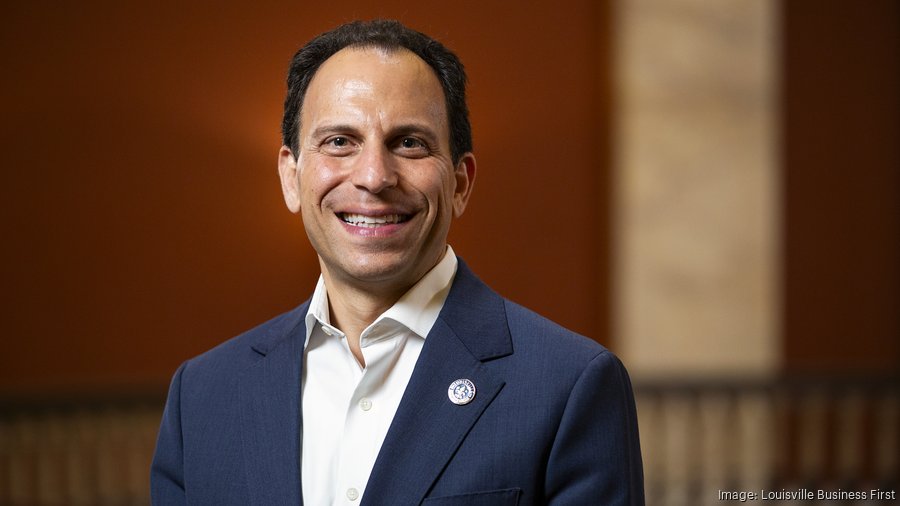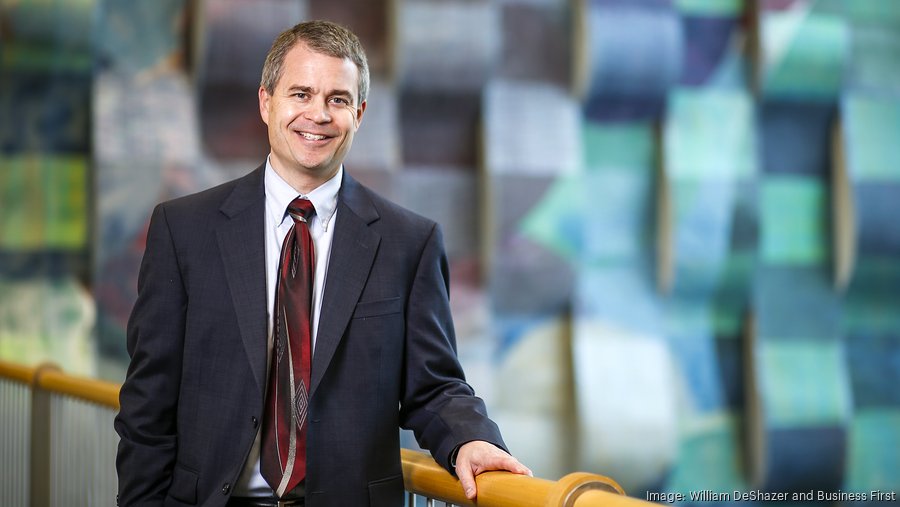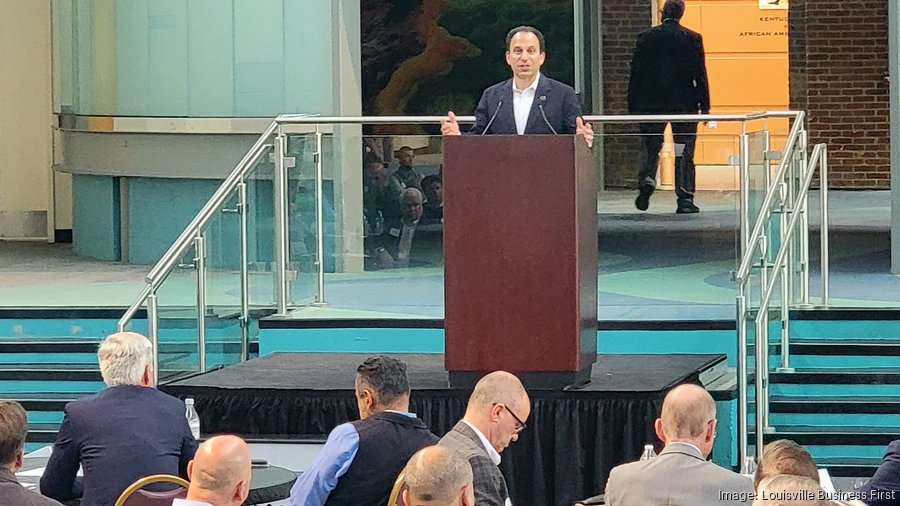Listen to this article 4 min
Louisville prides itself on its bourbon, restaurants and horse racing, and now Mayor Craig Greenberg wants to add water to the list.
"When you look at one of the competitive advantages that is unique to Louisville compared to other cities — it's water," Greenberg said. "We have ample water and good water here in Louisville. Look at what is going on on the coasts and other parts of this country. Water is a scarce resource and many cities that are thriving today are running out of water."
Greenberg made this statement on Wednesday at the Kentucky African American Heritage Center (KAACH), before a meeting of local stakeholders who make up an economic development working group. In August, the city's Office of Economic Development invited more than 60 local business, community and nonprofit leaders to take part in a series of meetings to help craft a new economic development plan to carry Louisville through the next decade.
The gathering at KAACH was the last of the four schedule meetings of the working group. Greenberg said the feedback from the discussions and online feedback from the public will be compiled into a strategic plan.
"We're going to be focused on action items, what we can and must do as a city," Greenberg said. "It will be a combination of policy recommendations for Frankfort as well as things the city can do on its own."

The main speaker at Wednesday's event was Spencer Bruce, CEO of Louisville Water Co., who discussed ways Louisville's water infrastructure could be an asset in attracting new business to the region.
Louisville Water was chartered by a special act of the state legislature in 1854. The company began operations in 1860 as Kentucky’s first public water provider. In 1906, the City of Louisville became the sole stockholder, turning Louisville Water into a quasi-municipal corporation.
The company supplies water and fire protection to communities in Louisville Metro and parts of Bullitt, Hardin, Nelson, Oldham, Shelby and Spencer counties. It also partners with the River Ridge Commerce Center in Southern Indiana to operate its water systems.
On average, Louisville Water produces about 127 million gallons of drinking water daily.
Bruce said because the Ohio River is constantly flowing, Louisville Water only uses one-tenth of 1% of the water passing its intake system because 75 billion gallons flow by Louisville every day.
He added that if you added up all the 30 water utilities on the Ohio River, they still use less than 3% of the river water, and if you include all the industries using the same water as Louisville, the usage is still less than 7%.
"We have this huge abundance of water and it's constantly flowing into our intakes everyday," Bruce explained. "Many, many places don't that. Advantage No. 1. No. 2 is our capacity. We have two treatment plants and we can produce about 220 million gallons of water a day.
"Our peak demand, which means the highest demand we have on a given day, over the last 10 years, has hovered around 180 million gallons. So, that leaves 40 million gallons a day of excess capacity that we don't have to spend money on a plant, we don't have hire more operators, we don't have to hire more staff. All we have to do is spend some chemical, spend some electrical and we can pump that out through our system."

Bruce said Louisville Water's excess capacity is equivalent to eight new Blue Oval battery plants, 53 new Ford truck plants or 67 distilleries the size of Brown-Forman Corp.
Louisville's abundance of an essential natural resource is becoming more and more unique in a world being impacted by climate change. Nearly half of the 204 freshwater basins in the United States may not be able to meet the monthly water demand by 2071, according to a 2019 study by Colorado State University.
The drinking water supply in New Orleans is being threatened by saltwater wedge inching up the Mississippi River. And the state of Kansas is suffering from a drought.
Bruce said the supply, quality and affordability of water available in Greater Louisville could be a deciding factor for a new or relocating business.
"We've worked really hard to be part of the economic conversation," Bruce added. "We brand our water [as Louisville Pure Tap] because we want people to realize the value that we have."
The public can still comment and offers ideas to stimulate growth in the city by visiting the Economic Development Strategic Plan website.
Annual salary: 2023
| Rank | Prior Rank | Person |
|---|---|---|
1 | 1 | Mann, Dan |
2 | 2 | Bruce, Spencer W. |
3 | 3 | Battle, Cleo |
